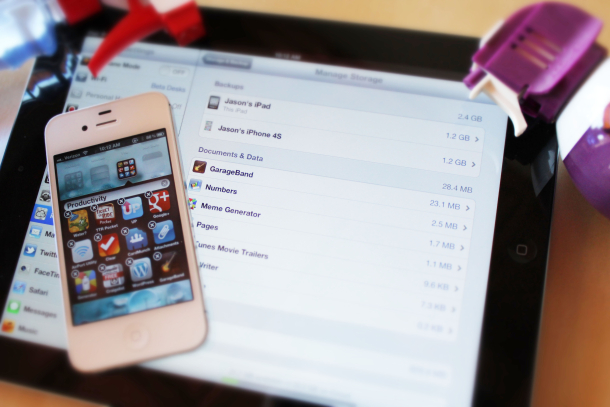
Recently, my husband and I got a Slingbox to watch our TV from our laptops while away from home. Why would we do this if most television shows and films are accessible online? Well, firstly – not everything is accessible (like local sports games) – which is why we have a Slingbox.
To this end, despite predictions that there will be 4.1 zettabytes of data in the cloud by 2016, according to Gartner, I believe there (at least for the foreseeable future) will always be technology needed to allow people to access content that resides on one device, from all other devices.
What I mean is that if you could access your photos and music on your desktop from your iPad and iPhone without having to transfer that data (and avoid having to waste storage space on all your devices), wouldn’t you want that? You would.
This is why Younity‘s technology has a place in our lives.
Younitiy allows users to access their content – mainly photos, videos, music – from one device (say your desktop) from another (your iPhone or iPad). Today, the service works with Mac and Windows and iOS devices. An Android rollout is on the roadmap for this fall.
Younity, which was a finalist at Splash February, just received $3.5 million in seed funding from Crosslink Capital, Draper Associates, PROfounders Capital, Lowercase Capital, Michael Birch (founder of the social network Bebo), Tekton Ventures and Knight & Bishop. The new capital will help the company roll out an Android version and hire more engineers in the Boulder area.
The Santa Monica, Calif. based six-person startup is betting on consumers who prefer to keep their content on multiple devices (like myself). Even though I use the cloud service Box to store all my photos, often – err more like always – I find myself wanting to access photos or videos from one device that’s on another. In fact, just an hour before I wrote this, I was showing my mom videos of my 16-month-year-old son. She asked if she could see another video, which I shot on my iPhone just a day ago. Unfortunately, my iPhone wasn’t accessible.
But with Younity, I could just hit the Younity icon on my iPad, and click on photos. Folders of photos from devices connected to Younity, like my iPhone and MacBook Air appear so I can click on them and access them.
Not only is this convenient (I didn’t have to run to my home office to grab my iPhone), my iPad now holds thousands of gigabytes, which is a good thing because I don’t have much capacity on my iPad.
The other upside is that Younity doesn’t store any of this data, like cloud services do. Its technology just for lets you see what you already own on your devices.
At the moment, tens of thousands of people have downloaded Younity, said Erik Caso, CEO at Entangled Media, in an interview. Entangled Media, which was part of the Mucker Lab Fall 2012 class, is the creator of Younity.
Now some people might wonder how useful technology like this will be in the future. After all, as mentioned above, data is moving into the cloud. At the same time, there’s still an abundance of data fragmented across multiple devices. Only 7% of consumer content was stored in the cloud, according to the same report. That means 93% of content is still all over our devices. As Caso has said to me in my first write-up when they launched, some 250 million people have three or more devices.
Moreover, the storage services are not cheap. “What we’ve seen is, people don’t generally store photos in Dropbox and Box as permanent storage,” said Caso.
Younity certainly solves a pain point for me, and I’m sure for many. The question is: how does Younity get distribution?
Caso is planning on a number of distribution channels. One example is working with photo-sharing apps, like Instagram. Today, most give you an option to take a photo or access an existing one on the device. With Younity, there’s a third option, accessing photos from any device.
Congrats Younity team.

















